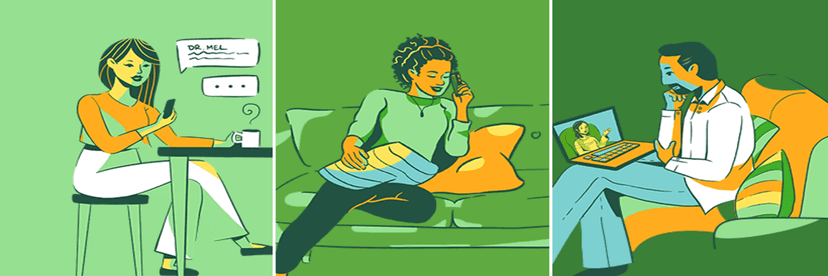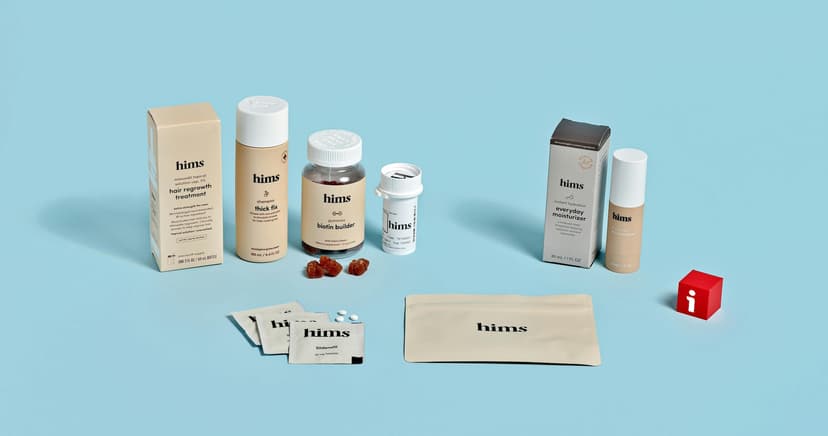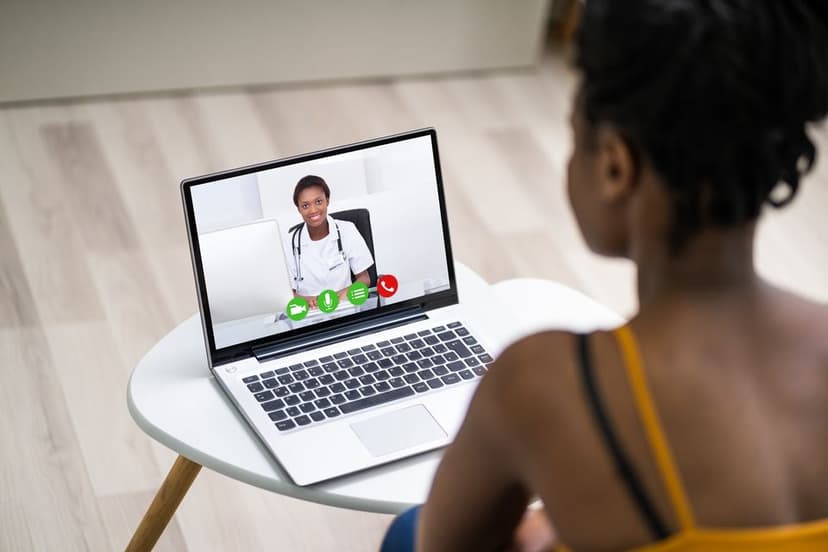In today's world, we are constantly connected to our devices. Phones, tablets, and computers have become a huge part of our daily lives. But sometimes, it's important to take a break from all the screens and notifications. This is where a digital detox comes in. A digital detox means taking a break from electronic devices to focus on the real world. It can help us feel better both mentally and physically, improve our relationships, and boost our creativity and productivity.
Key Takeaways
- A digital detox can help reduce stress and anxiety by giving your mind a break from constant notifications and information overload.
- Taking time away from screens can improve your focus and concentration, making it easier to complete tasks and enjoy hobbies.
- Stepping back from digital devices can lead to better sleep quality and reduce eye strain.
- A digital detox encourages more face-to-face communication, which can strengthen personal relationships and build empathy.
- By minimizing distractions, a digital detox can boost creativity and productivity, allowing you to think more clearly and come up with new ideas.
Understanding Digital Detox
Definition and Concept
A digital detox is a conscious choice to take a break from electronic devices like smartphones, computers, and tablets. The goal is to step away from constant notifications and social media updates to rethink our relationship with technology and reconnect with the world around us.
Historical Context
The idea of a digital detox has gained traction as our dependence on technology has grown. In the past, people didn't have to worry about being constantly connected. Today, the need to unplug has become more apparent as we navigate a world filled with digital distractions.
Why It's Necessary Today
In our modern world, digital devices are everywhere, offering endless streams of information and entertainment. This constant connectivity can lead to stress, anxiety, and even addiction. Taking a break from technology allows us to reduce stress, improve our focus, and engage more meaningfully with the people and activities around us.
Unplugging from digital devices, even for a short time, can help us regain balance and improve our overall well-being.
Mental Health Benefits of Digital Detox
Reducing Stress and Anxiety
Taking a break from digital devices can significantly lower stress and anxiety levels. Constant notifications and the pressure to stay connected can be overwhelming. By stepping away, you give your mind a chance to relax and reset.
Improving Focus and Concentration
When you're not constantly checking your phone or computer, your ability to focus and concentrate improves. This can lead to better performance in school or work, as well as more meaningful interactions with those around you.
Boosting Overall Mood
A digital detox can also boost your overall mood. Without the constant barrage of information and social media comparisons, you may find yourself feeling happier and more content with your life.
Taking time away from screens allows you to reconnect with yourself and the world around you, leading to a more balanced and fulfilling life.
Physical Health Improvements
Better Sleep Quality
Taking a break from screens can lead to better sleep. Blue light from screens can mess with your sleep cycle. When you cut down on screen time, you might find it easier to fall asleep and stay asleep.
Reducing Eye Strain
Staring at screens for too long can make your eyes tired and sore. This is called digital eye strain. By spending less time on devices, you give your eyes a chance to rest and recover.
Encouraging Physical Activity
When you're not glued to a screen, you have more time to move around. This can mean more time for sports, walking, or just playing outside. Being active is good for your body and can make you feel happier and healthier.
Taking breaks from screens can help your body feel better and give you more energy.
Strengthening Personal Relationships
Enhancing Face-to-Face Communication
When we put away our devices, we can focus more on the people around us. This helps us have better conversations and understand each other more. For example, without phones at the dinner table, families can talk and share their day. This makes everyone feel closer.
Building Stronger Bonds
Spending less time on screens means we have more time for real-life interactions. This can help us build stronger friendships and family ties. When we are not distracted by notifications, we can give our full attention to our loved ones, making our relationships stronger.
Improving Empathy and Understanding
Without the constant distraction of digital devices, we can be more present in our interactions. This presence allows us to better understand and empathize with others. We can pick up on non-verbal cues and emotions, which helps us connect on a deeper level.
Taking a break from screens can lead to more meaningful and fulfilling relationships. It allows us to be more present and engaged with the people who matter most.
Productivity and Creativity Boost
Minimizing Distractions
Taking a break from technology can help you refocus and be more productive in your work or creative pursuits. Without constant interruptions from notifications and distractions, you can concentrate better on important tasks. This focused environment allows for deeper thought and sustained attention.
Encouraging Mindfulness
Disconnecting from screens encourages mindfulness, helping you to be present in the moment. This practice can lead to a more thoughtful and intentional approach to tasks, enhancing both productivity and creativity.
Fostering Creative Thinking
A digital detox can also foster creative thinking. When you step away from the constant influx of information, your mind has the space to wander and explore new ideas. This can lead to innovative solutions and fresh perspectives.
Practical Tips for a Successful Digital Detox
Setting Clear Goals
Before starting your digital detox, it's important to set clear goals. Think about why you want to take a break from digital devices. Are you looking to reduce stress, improve your focus, or spend more time with loved ones? Write down your goals to keep yourself motivated.
Creating a Detox Plan
A well-thought-out plan can make your digital detox more effective. Decide on the duration of your detox and which devices or apps you will limit. You might choose to do a short digital fast for a day or a longer detox for a week. Make sure to inform your friends and family about your plan so they can support you.
Finding Alternative Activities
To avoid the temptation of going back to your devices, find alternative activities to keep yourself busy. Here are some ideas:
- Go for a walk or hike
- Read a book
- Spend time with friends and family
- Take up a new hobby or revisit an old one
Keeping a journal during your detox can help you track your progress and reflect on your experience. Write down your thoughts and feelings to better understand the impact of the detox on your life.
Challenges and How to Overcome Them
Dealing with Withdrawal Symptoms
When you start a digital detox, you might feel withdrawal symptoms like anxiety or boredom. These feelings are normal and temporary. To manage them, try to stay busy with other activities like reading, exercising, or spending time with friends and family.
Managing Social Expectations
People around you might not understand why you're doing a digital detox. Explain your reasons and ask for their support. You can also set specific times to check your messages so you don't feel completely disconnected.
Staying Committed
Staying committed to a digital detox can be tough. Here are some tips to help you stick with it:
- Make a Time Commitment: Plan to commit to at least two weeks to break strong digital habits.
- Gather Support: Share your goals with supportive people who can encourage you and hold you accountable.
- Assess Your Progress: Keep a journal to track your progress and write down your thoughts about the experience.
Remember, the goal of a digital detox is to create a healthier balance with technology. Stay patient and give yourself grace as you adjust.
Conclusion
Taking a break from our digital devices can bring many benefits. By stepping away from screens, we can reduce stress, improve our focus, and get better sleep. It also helps us build stronger relationships and gives us more time to do things we enjoy. A digital detox is a simple way to find balance in our lives and reconnect with the world around us. So, whether it's for a day, a weekend, or longer, consider unplugging and see how it can make a positive difference in your life.
Frequently Asked Questions
What is a digital detox?
A digital detox is when you take a break from using electronic devices like smartphones, computers, and tablets. The goal is to step away from screens and focus more on real-life activities and interactions.
Why do people do a digital detox?
People do a digital detox to reduce stress, improve their mental and physical health, and strengthen their relationships. It helps them regain balance and focus on what's truly important in life.
How long should a digital detox last?
The length of a digital detox can vary. Some people choose to unplug for a day, while others might take a break for a weekend or even a week. The key is to find a duration that works best for you.
What are the mental health benefits of a digital detox?
Taking a break from screens can help reduce stress and anxiety, improve focus and concentration, and boost your overall mood. It allows your mind to rest and recharge.
Can a digital detox improve sleep quality?
Yes, stepping away from screens, especially before bedtime, can lead to better sleep quality. The blue light from screens can interfere with your sleep cycle, so reducing screen time can help you sleep better.
What are some tips for a successful digital detox?
To have a successful digital detox, set clear goals, create a plan, and find alternative activities to keep yourself engaged. It's also important to communicate your plan to others so they understand your need for a break.
























